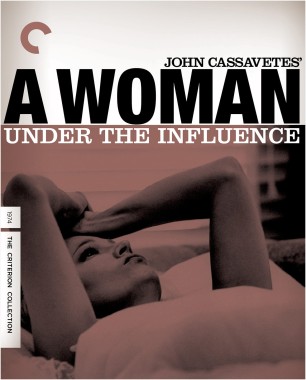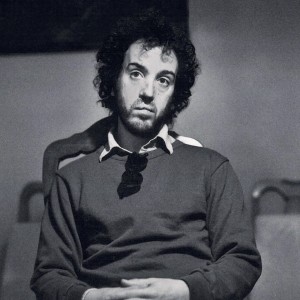
Marie Kreutzer’s Top10
Writer-director Marie Kreutzer is one of Austria’s most lauded contemporary filmmakers. After studying at the Film Academy Vienna, she went on to make a number of award-winning short films and features before gaining international acclaim with her fourth film, The Ground Beneath My Feet. With her latest film, Corsage, Kreutzer and star Vicky Krieps have been garnering awards and nominations around the world—including honors from Cannes, the European Film Awards, and the BAFTA Awards.
-
1
Billy Wilder
Some Like It Hot
The first few films I’ve selected for this list are ones that had a significant impact on me when I saw them in film school. I think Some Like It Hot was the first movie I saw in school. My directing professor at that time was Wolfgang Glück, who was nominated for an Academy Award for his film 38. He knew Billy Wilder very well and referred to him in every single lesson. We had to watch and analyze Some Like It Hot many times, which could have made me hate it. But I just loved it so much that even now, when it happens to be on television, I’ll sit and watch.
I love its atmosphere, and I also love Marilyn Monroe, who had a quality you cannot really put a finger on. She’s beautiful, and she’s a great actress, but that’s not everything—and you feel that extra special quality she had so strongly in this film. I always love when she gets to be funny. She’s so good at making fun of herself and not taking herself too seriously.
-
2
John Cassavetes
A Woman Under the Influence
A Woman Under the Influence is a one-of-a-kind movie. Of course I love it because of Gena Rowlands, but I also love it as a piece of storytelling. There are so many scenes that I’ll never forget. And I’m always interested in how mental illness is depicted in films.
As a director I need to be a good observer, and now, having worked with many different actors and watched so many auditions, I can tell when an actor has something they do repeatedly that they think is working or that they can always pull off. It’s when someone doesn’t rely on that that I’m totally attracted. I love when I’m surprised by an actor, when they don’t go for the obvious choice. You never know what’s going to happen in this film, even just in Rowlands’s face. You can never anticipate what she’ll do next. At the same time, she’s very minimalistic. She’s not acting, she’s just there.
-
3
Miranda July
Me and You and Everyone We Know
I was blown away when I saw this in film school, because I’d never seen anything like it before. We had to watch all of these important classic films, but then I saw this and just loved the spirit of it. It’s so unexpected.
It’s such an amazing ensemble film, and all of the actors are great. My first feature was an ensemble film, and I’d always wanted to do something like that because I love the way this type of film can capture relationship dynamics and how one life affects another. I also love when films have multiple layers, and Me and You and Everyone We Know is very funny but also very sad and surprising. You never know where it’s going to lead you, and as a screenwriter, I think that’s always the biggest compliment I can give a film.
Miranda July is such a unique artist. She has this rare combination of being very cool but also very soft. She seems strong, but at the same time you feel like you could see through her. I don’t know her personally, but it feels like how she behaves in this film is so imbued with her artistic sensibility.
-
4
Charles Chaplin
The Great Dictator
The Great Dictator is another film I can watch again and again. I saw this early in my life, but I never tire of it. I need to show it to my daughter; I think she’s ready. I think everyone should see it. It should be shown in history classes. I find it to be the best depiction of Hitler ever. And of course Charlie Chaplin is a singular actor and artist.
-
5
Jean-Luc Godard
Breathless
This is another film I saw in film school that changed me in many ways. I don’t have many pictures on my wall, but I do have a framed postcard that shows Jean Seberg and Jean-Paul Belmondo walking down the street. I love the dialogue; at first it seems quite opaque, but then you realize it makes so much sense. It’s so original. The editing is crazy and has become a part of film history. In school we were always being taught the “correct” way to make a film, and Breathless does the opposite of everything you’re “supposed” to do. It helped me understand that there isn’t just one way to do something.
Around that time, I made a short film that was adapted from one of the famous scenes between Seberg and Belmondo. They’re having a conversation, and she says, “I would rather have the name Ingrid.” Ingrid is my mother’s name. So I decided to make a black-and-white short called Ingrid, which uses the same conversation but delivered by two women. It was not my first short or my best short, but I just loved making it and playing around with the material.
Breathless does what great films should do: it gives you a feeling that you cannot really name. You just feel it when you see it, and that makes it even more touching because you cannot say, I’m sad because this is a sad scene or I’m laughing now because this is funny moment. There’s a lot of emotion in the film that you cannot articulate.
-
6
Arnaud Desplechin
A Christmas Tale
I first saw this at the Vienna Film Festival, and at the time I was preparing to make my first feature, which was an ensemble film about a broken family. So I tried to see a lot of films about families, and this one had such an influence on me. It has a very specific mixture of comedy and drama. I loved how Desplechin used a lot of cinematographic techniques that weren’t modern or fashionable but added so much, like irises.
To prepare for my movie, I spent a lot of time analyzing the group scenes at the dinner table. Desplechin is another director who breaks all the rules, all the time, and it doesn’t matter. This may sound obvious and cheesy, but A Christmas Tale taught me that it’s emotion that leads you in a scene. There are decisions you can make to support a scene, but what’s most important is that you focus on what happens between the characters. The rest will come after.
The film has a great ensemble cast, and it was the first time I really saw Mathieu Amalric. I love the moment when the family opens the door and he’s standing there in the rain and thunder, and the scene when he’s falling into the street, and the exchange between him and Catherine Deneuve in the garden, when they’re confessing that they never loved each other. The dialogue is subversive; often the characters are speaking the subtext of a scene. Desplechin knows how to write this way while still being very natural and cool.
-
7
Wes Anderson
The Darjeeling Limited
I also saw The Darjeeling Limited while I was working on my first feature. It’s my favorite Wes Anderson film, and I find it very emotional. It’s a story about siblings. I think Corsage is my first film that’s not explicitly about family, but that’s a subject I love exploring—you cannot pick your family, and that’s what makes it endlessly fascinating. But the depiction of family here is done in Anderson’s unique way. The scene at the end when they throw the suitcases—I cried! All his films are so perfectly composed, but they also leave space for the actors, and that’s especially true of this one. It feels a bit looser than his others and strikes a perfect balance for me.
-
8
Richard Linklater
Before Sunrise
I’ve seen Before Sunset and Before Midnight only once, but I’ve seen Before Sunrise many times because it was shot entirely in Vienna. It was a big film there, and you can see a lot of cool local people in the background. I was quite young when it was shot and wasn’t yet in the film world, but we all know someone who was in the film and know all the locations. It’s a very Viennese thing to watch this film again and again.
Before Sunrise is a special love story, and I think I relate to it because it’s about people from my generation and how we interacted. For me, it’s such a nineties thing. I had so many conversations like the ones Celine and Jesse have. How would that story even happen now? The lovers would be disturbed by a thousand texts.
-
9
Olivier Assayas
Personal Shopper
This is one of the Olivier Assayas films I love the most. I saw it while I was preparing for my film The Ground Beneath My Feet, which is about a business consultant who travels a lot and struggles with her mentally ill sister. The stories of the two films are different, but there are many parallels between the main characters.
I also love how you never quite know where you are, genre-wise. Is it a ghost story or not? As a filmmaker, I find it hard to sell people on these kinds of films—and I’m not even talking about money. It’s difficult to convince them that these films are good without them asking, “But what is it then?” or “How will you solve this?” When I did The Ground Beneath My Feet, some critics wrote that there had been a mistake in the script, because certain things were unresolved. But the intention was not to solve those things, but to leave the audience wondering if what happens is real. It’s that spirit that kept me enthralled while watching Personal Shopper. I also think it features one of Kristen Stewart’s best performances. I was captivated by her throughout it.
-
10
Thomas Vinterberg
The Celebration
Thomas Vinterberg is a great director, and I love all his films. The Dogme 95 movement happened while I was in film school and made us all see that we could make things in a different way. Of course, compared to Hollywood filmmakers, we didn’t find it so different, because our budgets had always required us to find ways to do things cheaply. A lot of the techniques that the Dogme filmmakers were using were ones we had to use, too, because we didn’t have lighting or big crews. Still, the extremes that those filmmakers went to felt very new.
The Celebration was important for me because it’s about the complexity of what happens within a family. It was so new then to explore this subject matter in this style. By now we’ve seen a lot of films about traumatic events within families and how people deal with it, but this was the first time I’d ever seen it done with such intensity and honesty. It’s a very hurtful film. The Dogme films test the viewer’s limits, but that’s also part of what makes them so impressive. I’ve always found it interesting how the filmmakers who began their careers in this movement went on to make very different kinds of films while still maintaining that daring spirit, like Vinterberg did with Another Round.














